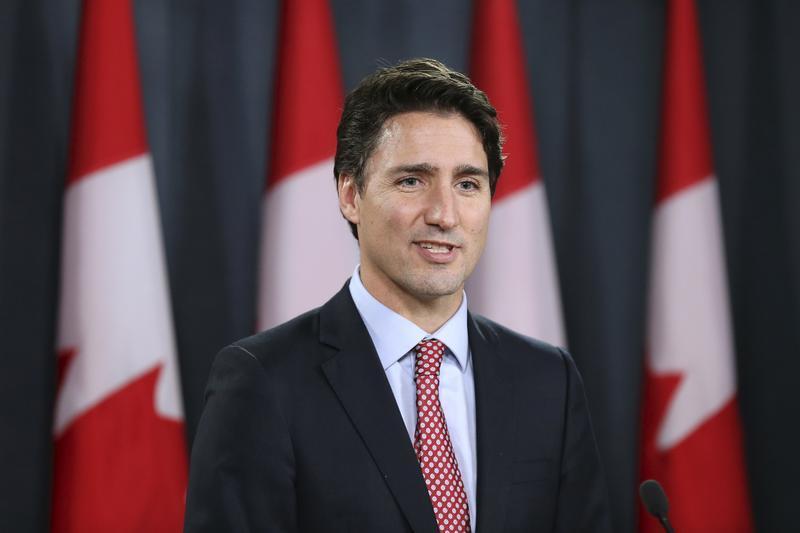Canada’s New Climate Target Falls Short
At the US Climate Summit today, top ten greenhouse gas emitter Canada announced its long-awaited new emissions reduction target for 2030.

While Canada has been at pains to present itself as a climate leader and ally alongside the US, with the new target of 40-45 percent Canada continues to lag far behind its peers. It needs to do much more to prevent the most dramatic human rights harms from climate change. With only nine years left to prevent the worst foreseeable climate impacts according to the United Nations climate science body, the clock is ticking for Canada to do its part. Canada, which is warming at up to almost three times the global rate, should need no prompting. As Human Rights Watch documented in a report released last year, climate change is contributing to growing food insecurity and related negative health impacts in First Nations in Canada—clear signs of worse to come. Yet in this first update to Canada’s emissions reduction target since it was set at 30 percent in 2015 under the previous Conservative government, Prime Minister Justin Trudeau has missed the mark. Canada’s new pledge to reach a 40-45 percent reduction by 2030 compared to 2005 levels is a far cry from the 60 percent reduction needed for Canada to contribute its fair share to global emissions reduction efforts. Other major emitters, meanwhile, have set much more ambitious targets.
The US has pledged to nearly double its former target of a 26-28 percent reduction to cut emissions in half by 2030 compared to 2005 levels.
The UK, already half-way to net-zero and working to reduce emissions by 68 percent compared to 1990 levels, will legislate a 78 percent reduction target for 2035 relative to 1990 levels, roughly equivalent to a 58 percent reduction from 2020 levels. Canada—currently on track to reduce emissions by 36 percent by 2030—remains the only G7 country whose emissions are substantially higher than 1990 levels. Canada is also the largest per capita public financer of fossil fuels, second only in total numbers to China. If Canada wants to credibly present itself as a climate ally for the US, the Trudeau government should urgently demonstrate its commitment to ambitious climate action, including by delivering a clear plan to phase out fossil fuel subsidies and investing in rapid decarbonization efforts.
Read the full article at the original website
References:
- https://www.nationalobserver.com/2021/02/03/opinion/biden-will-find-canada-determined-resilient-ally-climate-crisis
- https://globalnews.ca/news/7779596/climate-change-emissions-targets-canada-2030-trudeau/#:~:text=Prime%20Minister%20Justin%20Trudeau%20announced,of%202005%20levels%20by%202030.&text=The%20Liberals%20say%20existing%20measures,%2Dzero%20by%20mid%2Dcentury
- https://www.unep.org/emissions-gap-report-2020
- https://www.rcinet.ca/eye-on-the-arctic/2019/04/02/climate-change-warming-canada-report-heat-global-average/#:~:text=Canada%20is%2C%20on%20average%2C%20experiencing,Environment%2
- https://www.hrw.org/news/2020/10/21/canada-climate-crisis-toll-first-nations-food-supply
- https://www.cbc.ca/news/politics/canada-sets-carbon-emissions-reduction-target-of-30-by-2030-1.3075759?_ga=2.219156377.1448923526.1618992719-1566692248.1618992719
- https://climateactionnetwork.ca/2019/12/02/canadas-fair-share-towards-limiting-global-warming-to-1-5c/
- https://www.theguardian.com/us-news/2021/apr/22/us-emissions-climate-crisis-2030-biden
- https://www.gov.uk/government/news/uk-enshrines-new-target-in-law-to-slash-emissions-by-78-by-2035
- https://www.cbc.ca/news/politics/liberal-federal-budget-2021-reaction-1.5991419
- https://www.nationalobserver.com/2021/02/04/analysis/canada-pledges-strengthen-2030-climate-targets
- http://priceofoil.org/2020/05/27/g20-still-digging/
